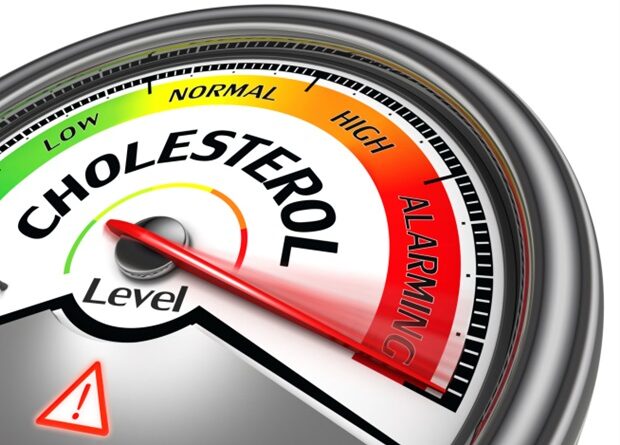New research reveals the effect of the keto diet on cholesterol and the gut microbiome
A study from the University of Bath reveals that a low-carb ketogenic diet can increase cholesterol levels and reduce beneficial gut bacteria, especially Bifidobacterium.
Published in Cell Reports Medicineresearch from the Center for Nutrition, Exercise and Metabolism involved 53 healthy adults for up to 12 weeks. Participants followed a moderate-sugar (control) diet, a low-sugar diet (less than 5% of calories from sugar), or a ketogenic (keto) diet with low carbohydrates (less than 8% of calories from carbohydrates).
Key findings include:
- Increased Cholesterol: The keto diet has raised cholesterol levels, especially in the small and medium LDL particles. Diet increases apolipoprotein B (apoB), which causes plaque buildup in the arteries. On the other hand, the low-sugar diet significantly reduced LDL cholesterol levels.
- Reduce Favorable Gut Bacteria: The keto diet has changed the composition of the gut microbiome, significantly reducing it. Bifidobacteria, the beneficial bacteria commonly found in probiotics. This bacterium has many benefits: producing B vitamins, inhibiting harmful bacteria and viruses and lowering cholesterol. Glucose restriction did not significantly affect the composition of the gut microbiome.
- Glucose Tolerance: The keto diet has decreased glucose tolerance, which means that the body of adults becomes less able to handle carbohydrates.
- Both Diets Resulted in Fat Loss: The Keto Diet resulted in an average fat loss of 2.9 pounds per person, while the restricted-sugar diet followed with a fat loss of 2.9 pounds per person. 2.1 per person for 12 weeks.
- Metabolism: Researchers have also noted that the keto diet caused significant changes in lipid metabolism and muscle energy use, changing the body’s preference for fat from glucose to fat.
- Physical Activity Levels: Both sugar restrictions and the keto diet have achieved fat loss without changing exercise levels. Previous studies from the Center for Nutrition, Exercise and Metabolism have shown that skipping breakfast or intermittent fasting leads to a reduction in physical activity.
Principal investigator Dr. Aaron Hengist highlighted the cholesterol findings:
“Despite reducing fat mass, the ketogenic diet increased levels of unhealthy fats in the blood of our participants, which, if sustained for years, could have long-term health consequences such as an increased risk of heart disease and stroke.”
Dr. Russell Davies, who led microbiome research, explained the impact on gut health:
“Dietary fiber is essential for the survival of beneficial gut bacteria such as Bifidobacteria. The ketogenic diet has reduced fiber intake to around 15 grams per day, half of the NHS recommended intake. This reduction in Bifidobacteria can contribute to significant long-term health effects such as an increased risk of digestive problems such as irritable bowel syndrome, an increased risk of intestinal infections and a weakened immune system.”
Professor Javier Gonzalez, who supervised the research, commented on the sugar findings:
“The ketogenic diet reduced the level of fasting glucose but also reduced the body’s ability to process carbohydrates from the diet. By measuring proteins in muscle samples taken from the legs of the participants, we think that this may be a variable response to eating less carbohydrates daily and shows insulin resistance to store carbohydrates in the muscles. This insulin resistance is not a bad thing if people follow a ketogenic diet, but if changes these continue when people return to a high-carbohydrate diet, which can increase the risk of developing type 2 diabetes in the long term.
As a result of this new research, academics conclude that if you think about food, low sugar will be good for most people. Much work is needed to understand how people can benefit from each type of food. The government recommends that free sugar (added to food or drink or found naturally in honey, syrups, fruit juice and smoothies) should be kept to less than 5% of total energy used.
Professor Dylan Thompson, who also supervised the work, said: “The ketogenic diet works well for fat loss, but it comes with different metabolic and microbiome effects that may not suit everyone. On the other hand, glucose restriction supports government guidelines for reducing free sugar intake, promoting fat loss without adverse health effects.”
This work was supported by an initial grant from The Rank Prize Funds, with subsequent funding from the Cosun Nutrition Centre, University of Bath, and Ian Tarr. Research grants included fellowship support for other researchers from the British Heart Foundation and the Medical Research Council.
The full paper titled ‘Ketogenic diet (but not free glucose restriction) alters glucose tolerance, lipid metabolism, peripheral tissue phenotype, and gut microbiome’ is published in Cell Reports Medicine.
Source:
Journal reference:
https://doi.org/10.1016/j.xcrm.2024.101677
#research #reveals #effect #keto #diet #cholesterol #gut #microbiome
